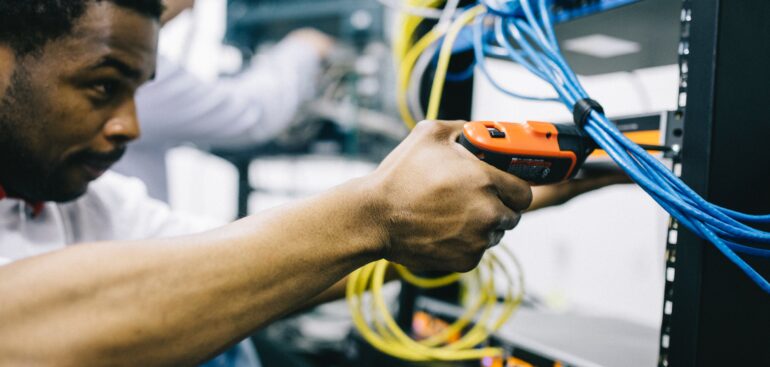New technology is transforming the workplace in unprecedented ways. The transformation is both positive and negative based on which end of the spectrum you sit on. Technology has improved efficiency and convenience. However, this has to come at a price.
What does the rise in e-commerce platforms, artificial intelligence, and machine learning mean for the labor force? Pundits have warned on the negative implication of technological advancement on the livelihoods of many who join the labor force without the appropriate skills for the future workplace. How is technology affecting the workplace?
The nexus between new technology and labor markets is a topic that has been making headlines all over the globe due to the fact that from the comprehension of most people, advancement in technology is synonymous with doom for employment prospects and for job seekers across the world. Technology is advancing at breakneck speed with the advent of artificial intelligence, 3D printing, robotics, autonomous vehicles, and machine learning, threatening the jobs of millions of workers both blue and white collar jobs.
All is not gloom though as some optimists believe technological transformation has the potential to create jobs. However, it has been observed that technological transformation is not skill neutral. It tends to favor certain skills while devaluing others. This phenomenon has been dubbed ‘skill-biased technological change’. Low skilled workers will be hit the hardest as the risk of displacement from their jobs is higher. Also, some authors found that new technologies increasingly substitute routine tasks calling this portent ‘routine-biased technological change’. The fear that new technologies will render some workers redundant in some cases is overestimated and stems from the fact that we do not have sufficient information at this point in time to make conclusive suppositions. The technological transformation has the potential to create jobs through innovation.
The challenge of the future is coping with the consequences of inequality as a result of technological advancement. This means drastic measures need to be taken by policymakers to ensure inequality gap is not widened. Due to the threat technological advancement poses on employment, some have suggested governments should provide a basic salary to unemployed citizens. Investing in robotics, autonomous vehicles, 3D printing, artificial intelligence and machine learning means firms are expected to reduce the cost of producing goods and services in the long-term as a result. Declining marginal costs will translate to increasing profit margins. Added income should compel governments to increase corporate taxes and channel more money into social services to reduce inequality. This proposition has some worried that it might lead to a lazy society living off social services.

